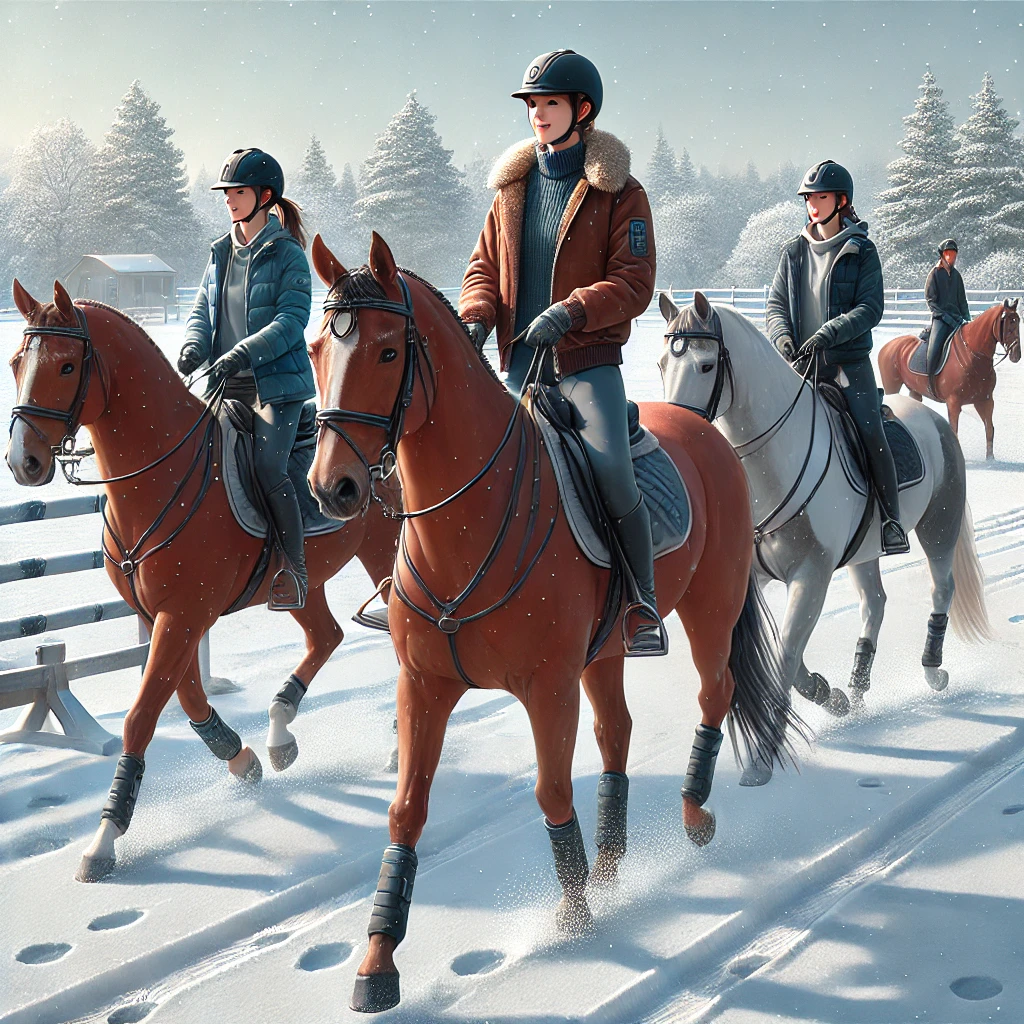
Horses are remarkably resilient to cold weather, but even they need time to adjust when temperatures drop. As the season shifts, the horse’s body undergoes changes to cope with the chill, but sudden exposure to extreme cold can still affect their performance and well-being.
Cold weather doesn’t just chill the surface—it impacts deeper structures like muscles and joints. Muscle fibers, responsible for movement, don’t work as efficiently in the cold. The nerves that activate these muscles also slow down, and blood flow is concentrated in the body’s core to maintain warmth for vital organs, leaving resting muscles colder. Cold muscles become stiffer, and the increased activation of antagonist muscles can reduce movement efficiency. This stiffness can also affect joint mobility, as colder temperatures increase the viscosity of synovial fluid, making joints feel stiff and less responsive.
To mitigate these effects, ensure your horse has a proper warm-up before any exercise session. This helps muscles and joints loosen up, preventing strain or injury. Ensuring your horse stays warm and dry with appropriate blankets and maintaining a well-ventilated but dry environment help prevent respiratory issues and keep your horse comfortable and healthy.
Equine massage is an excellent way to complement your horse’s care routine during the cold season. Pre-exercise massage enhances circulation, warms up the muscles, and improves flexibility, reducing the risk of strain or injury. Post-exercise massage can help alleviate stiffness, promote recovery, and keep muscles supple. Regular massage sessions can make a noticeable difference, keeping your horse feeling their best all winter long!





